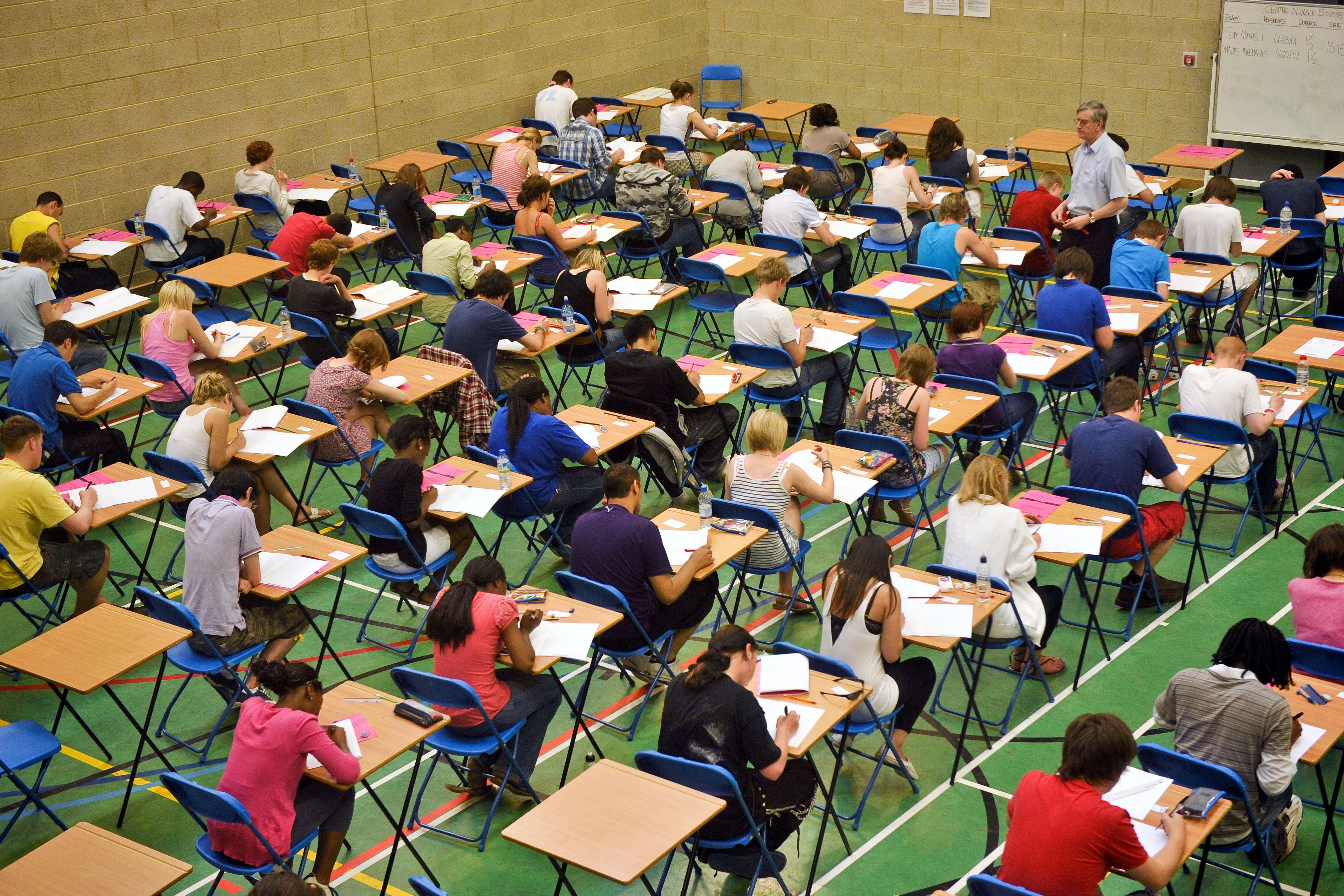Q: Did a robot help your A-level child to cheat?
A: No! Says A-level exam board chief Jill Duffy – we have nothing to fear from AI in the classroom


We now know what it’s like to sit exams in the age of generative AI. As it turns out, it isn’t so different from the pre-ChatGPT era. You cannot summon an AI chatbot to an exam hall to take an exam for you (not yet, at least). Students are still equipped only with a pen and their own wits.
That’s right: despite horror stories about students sitting back and letting HAL 9000 do all the hard work for them, exam boards faced relatively few cases of alleged malpractice involving AI this year. Most students appear to agree, with many saying that ChatGPT makes no difference to GCSE and A-level exams, according to a survey from The Student Room.
If anything, the rise of AI over the past few years has only reinforced the value of in-person and human-supervised exams. They are still the best protection against cheating. They put students on a level playing field. They allow students to show what they know and what they can do.
So, was that it for technological disruption of assessment? Is it time to move on? Absolutely not.
The country has a huge opportunity to get the balance right: to take the best of tech, including on-screen exams and generative AI learning materials, while strengthening tried and tested methods. Our exam and school systems, tech-savvy culture and wealth of experienced teachers mean we’re ready for a pragmatic, evolutionary approach to technology in assessment.
Some GCSEs, A-levels and other high-stakes exams will be sat online in the near future. That’s inevitable. Thousands of students successfully sat digital mock exams this year in subjects like computer science – they’re ready for the real thing.
When OCR and Cambridge ran digital mock exams in the UK and overseas this year, 92 per cent of students preferred the chance to type answers. Examiners – many with painful experiences of interpreting obtuse handwriting – liked this too. They also praised relatively mundane benefits, like seeing their word counts and a timer on screen.
About half of parents and students would prefer a mix of on-screen assessment and pen and paper, according to an Ofqual poll. This is the hybrid future for exams that we can, and should, move towards.
It will involve some generative AI to support teaching and revision, digital exams alongside pen and paper ones, and people being ever more central to assessment: students, teachers and examiners.
We have to harness generative AI, data science and online learning in a more human-centred way. That means pinpointing where technology can allow teachers and students to achieve more, rather than simply displacing some of their work. We already see that outside of our schools, where AI helps Cambridge experts to deliver Linguaskill, offering adaptive testing and rapid exam results for those learning English as a foreign language.
We know where technology cannot match what people offer. AI cannot replace the teacher skilled in questioning to develop individual students’ understanding; who can respond to pupils’ well-being needs; or who can tell when a student is producing their own work using clues that no large language model will be trained to recognise.
All the challenges – in cybersecurity, countering cheating, and fair access to technology – are solvable with smart deployment of existing approaches, building on the experiences of teachers. We do not need to rethink the fundamentals of a good exam system; in fact, we can augment them.
We have to look carefully at which technologies work today – and are working today in classrooms – and decide which of those we need more of. We do not need to chase unproven vapourware when we already have a chance to enhance learning and assessment through tried and tested means.
As the government consults on generative AI in education, when it comes to exams, we need not be distracted by future technologies and their theoretical applications. We know how to make existing technologies work for students. Schools need quality digital infrastructure: high-speed internet access with enough laptops and tablets to teach and test well.
We cannot put generative AI back in its box. We have to embrace the opportunities for education while being clear-sighted about the limits.
Our society and economy will need people who are able to use AI discerningly. But more important than the latest large language models will be the critical skills and thinking that underpin their use: from data science and public health to politics, culture and green tech. Maths and English may become more important than ever, even as subjects like computing evolve.
As A-level students celebrate their exam results, they deserve praise for navigating so many distractions, and bringing their best to the exam hall. Bright, curious people – teachers and students – are as much a part of the future as ever. Those fundamentals will not change anytime soon.
Jill Duffy is chief executive of OCR
The Independent is hosting a virtual event today (August 17) at 6.30pm on AI. Sign ups close at 4pm






Join our commenting forum
Join thought-provoking conversations, follow other Independent readers and see their replies
Comments